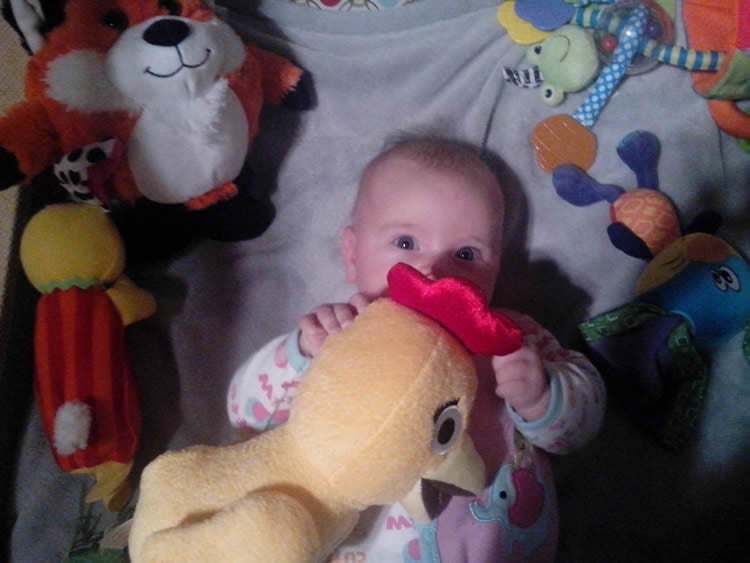New research from the University of Maryland and Harvard University suggests that young infants benefit from hearing words repeated by their parents. With this knowledge, parents may make conscious communication choices that could pay off in their babies’ toddler years and beyond.
“Parents who repeat words more often to their infants have children with better language skills a year and a half later,” said co-author Rochelle Newman, professor and chair of UMD’s Department of Hearing and Speech Sciences (HESP). “A lot of recent focus has been on simply talking more to your child — but how you talk to your child matters. It isn’t just about the number of words.”
Newman and co-authors HESP Professor Nan Bernstein Ratner and Harvard Associate Professor of Education Meredith L. Rowe tracked maternal-child directed speech to prelinguistic (7-month-old) infants. They specifically measured the infants’ ability to understand language at 7 months, and later the children’s vocabulary outcomes at age 2. They found that the toddlers who had stronger language outcomes differed in two ways from their peers: their parents had repeated words more often, and they were more tuned in to the language as infants, and thus better able to process what was being said.
“It takes two to tango”, said Dr. Ratner. “Both the child and the parent play a role in the child’s later language outcomes, and our study is the first to show that.”
The researchers believe their findings will be of immediate use to families. While it is clinically proven that parents naturally speak more slowly and in a specialized “sing-song” tone to their children, the findings from this study will perhaps encourage parents to be more conscious of repeating words to maximize language development benefits.
“It is the quality of the input that matters most, not just the quantity,” said Dr. Rowe.

This new study builds on a growing body of research from HESP focused on exploring infant language development. Professor Newman and two of her then-graduate students recently published “Look at the gato! Code-switching in speech to toddlers” in the Journal of Child Language. That study examined the phenomenon of “code-switching,” wherein adults speak more than one language and “mix” those languages when speaking to their children. A lot of children are told that this type of language mixing is bad for children, but Professor Newman and her colleagues found that this “code-switching” has no impact on children’s vocabulary development.
Source: Laura Ours – University of Maryland
Image Source: The image is credited to NeuroscienceNews.com
Original Research: Abstract for “Input and uptake at 7 months predicts toddler vocabulary: the role of child-directed speech and infant processing skills in language development” by Rochelle S. Newman, Meredith L. Rowe and Nan Berstein Ratner in Journal of Child Language. Published online August 24 2015 doi:10.1017/S0305000915000446
Abstract
Input and uptake at 7 months predicts toddler vocabulary: the role of child-directed speech and infant processing skills in language development
Both the input directed to the child, and the child’s ability to process that input, are likely to impact the child’s language acquisition. We explore how these factors inter-relate by tracking the relationships among: (a) lexical properties of maternal child-directed speech to prelinguistic (7-month-old) infants (N = 121); (b) these infants’ abilities to segment lexical targets from conversational child-directed utterances in an experimental paradigm; and (c) the children’s vocabulary outcomes at age 2;0. Both repetitiveness in maternal input and the child’s speech segmentation skills at age 0;7 predicted language outcomes at 2;0; moreover, while these factors were somewhat inter-related, they each had independent effects on toddler vocabulary skill, and there was no interaction between the two.
“Input and uptake at 7 months predicts toddler vocabulary: the role of child-directed speech and infant processing skills in language development” by Rochelle S. Newman, Meredith L. Rowe and Nan Berstein Ratner in Journal of Child Language. Published online August 24 2015 doi:10.1017/S0305000915000446






